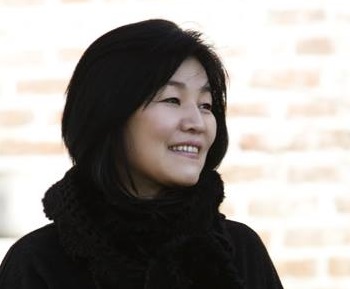
The Court Dancer, by Kyung-Sook Shin
 On the surface, The Court Dancer
On the surface, The Court Dancer is a beautiful novel about a young woman, Jin, and her relationship with a Frenchman. Yet it is also so much more. It is about how the West views non-western peoples, and vice versa. It is about how a woman in a very traditional country transcends her circumscribed role. It is about the contrast between fascination with the exotic, and true love. It is about loyalty and self-determination.
The novel takes place in the late 1800s, at a time when Korea was controlled by China but still had its own king. Korea was just beginning to be open to interacting with other countries. France sent a legate (an official representative, akin to an ambassador) to make sure Catholic priests and nuns in Korea were no longer being killed and harassed, and this legate, Victor, falls in love at first sight with a court lady, Jin.
It’s difficult to know whether Jin returns his love, because as a court lady, she is required to follow the Queen’s commands, and the Queen asks her to spend time with Victor, who eventually takes her to Paris with him. Jin must leave behind her beloved foster mother and the man who truly loves her. In Paris, despite the fact that she is uncomfortable with being the object of stares and curiosity, she discovers freedom she had not known, and willingly takes on a role to educate the French about Korea. At one point she argues with Victor about the international treasures in the Louvre.
–Why? Why do you think the Venus and the sphinx would’ve perished if not for France?
–I’ve seen with my own eyes treasures being mistreated or neglected. It made me feel very sad. They’re not mistreated anymore once they reach the Louvre. France has the power and the means to bring them here.
–Then you’re the same as the British, the Germans, and the Americans, Victor! Like Japan or China or Russia thinking they’re protecting Korea.
Jin stood up straight. The willow branches along the Seine bowed over the surface of the water, almost touching it.
–People here look at me like they look at the things you’ve collected, Victor.
–What on earth are you talking about?
–I’m no different than the exhibits in the Louvre. (p. 231)
The author is a well-known Korean novelist. This is the first work I’ve ever read translated from Korean, so I can’t say how representative it is of Korean literature. The author seems less concerned with plot or character than with elaborating moments of great emotional depth or importance. Certain scenes are remembered and re-told repeatedly, such as the time 5-year-old Jin first meets the Queen and is fed spoonfuls of pear by the monarch, or the scene in which Victor first sees, and photographs, Jin.
While plenty of dramatic events do take place in this novel, it is not a book to be devoured for its plot, but to be savored slowly. Each sentence unfolds like a poem, and each scene is poignant and even heart-rending.